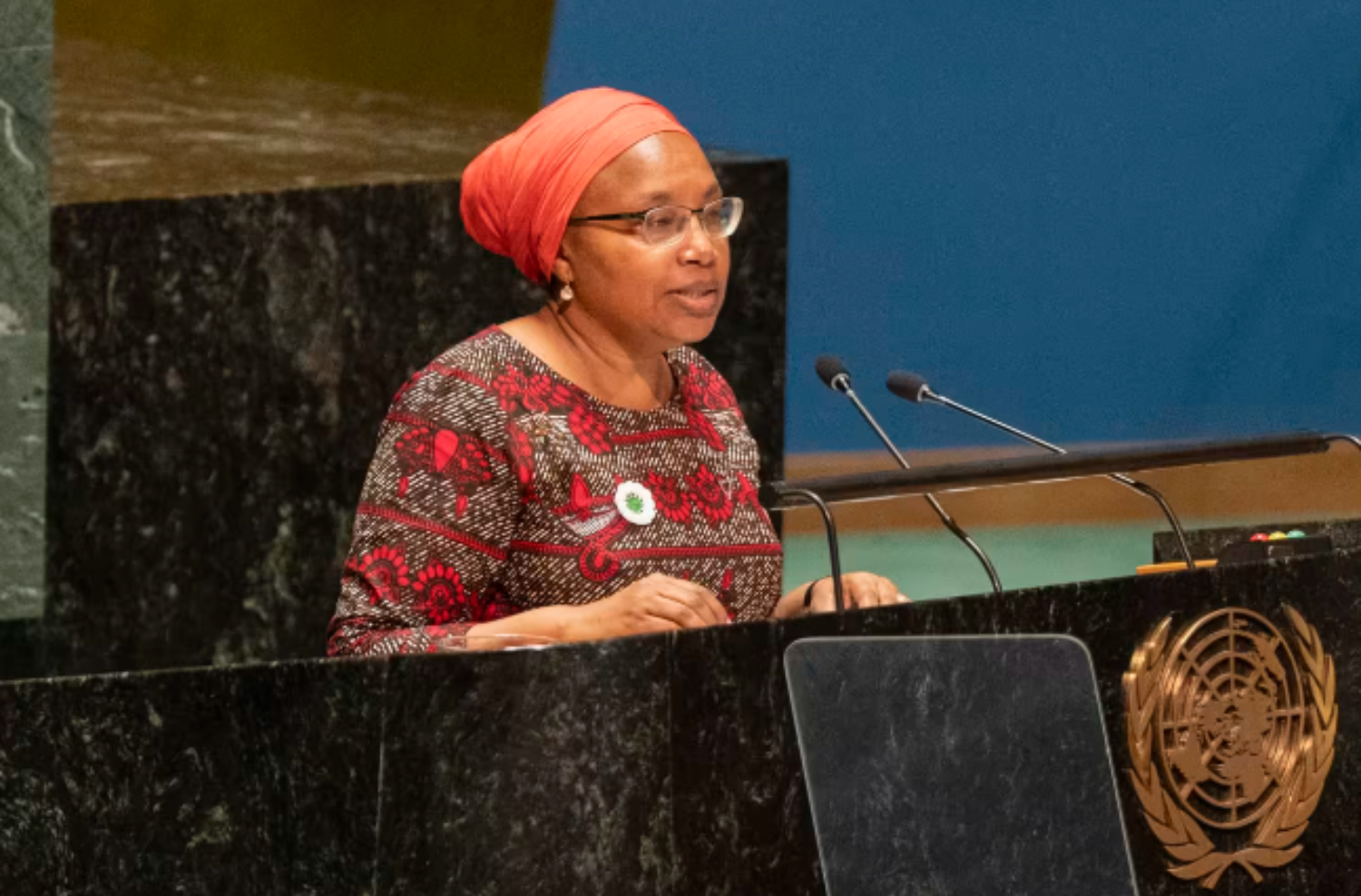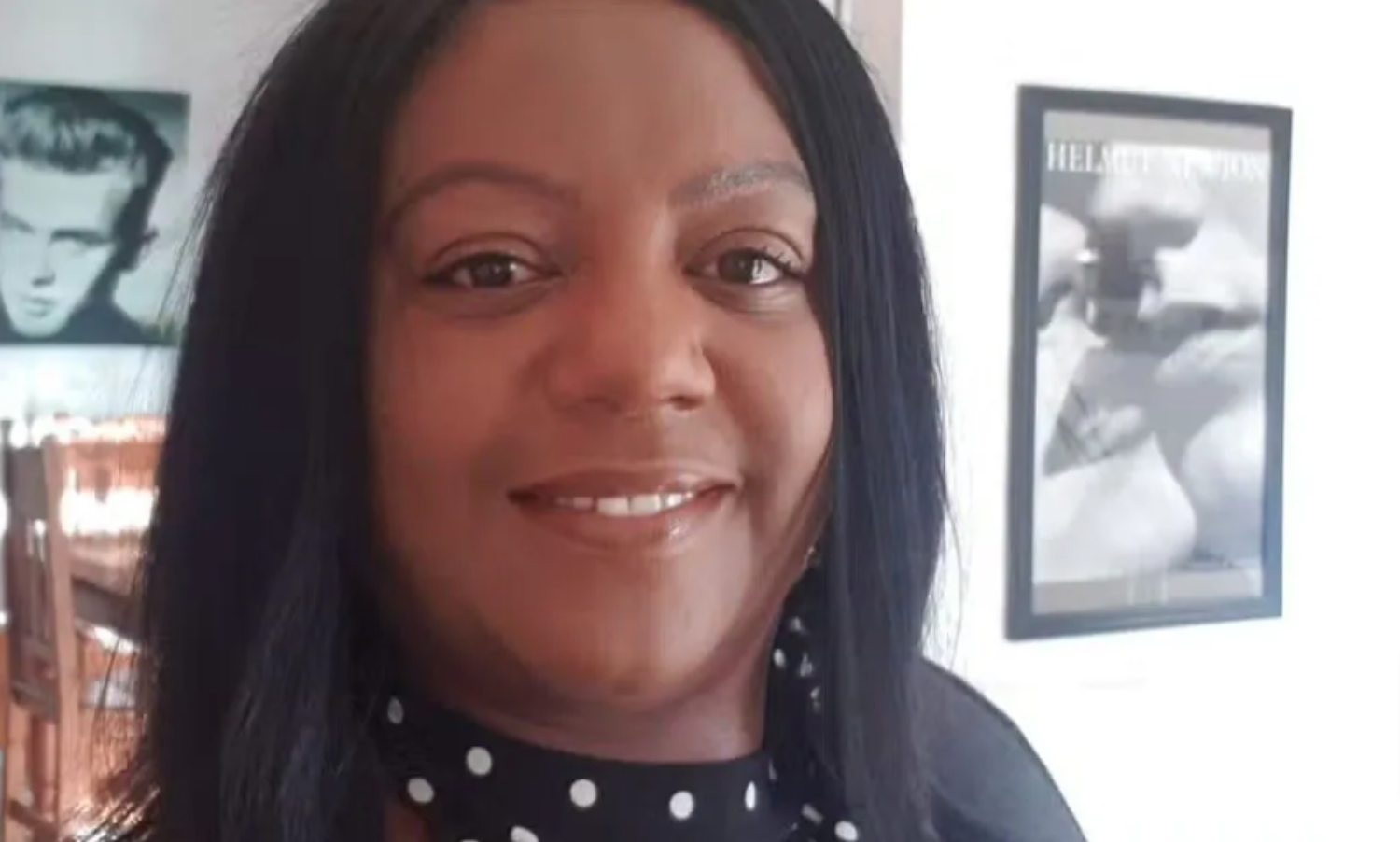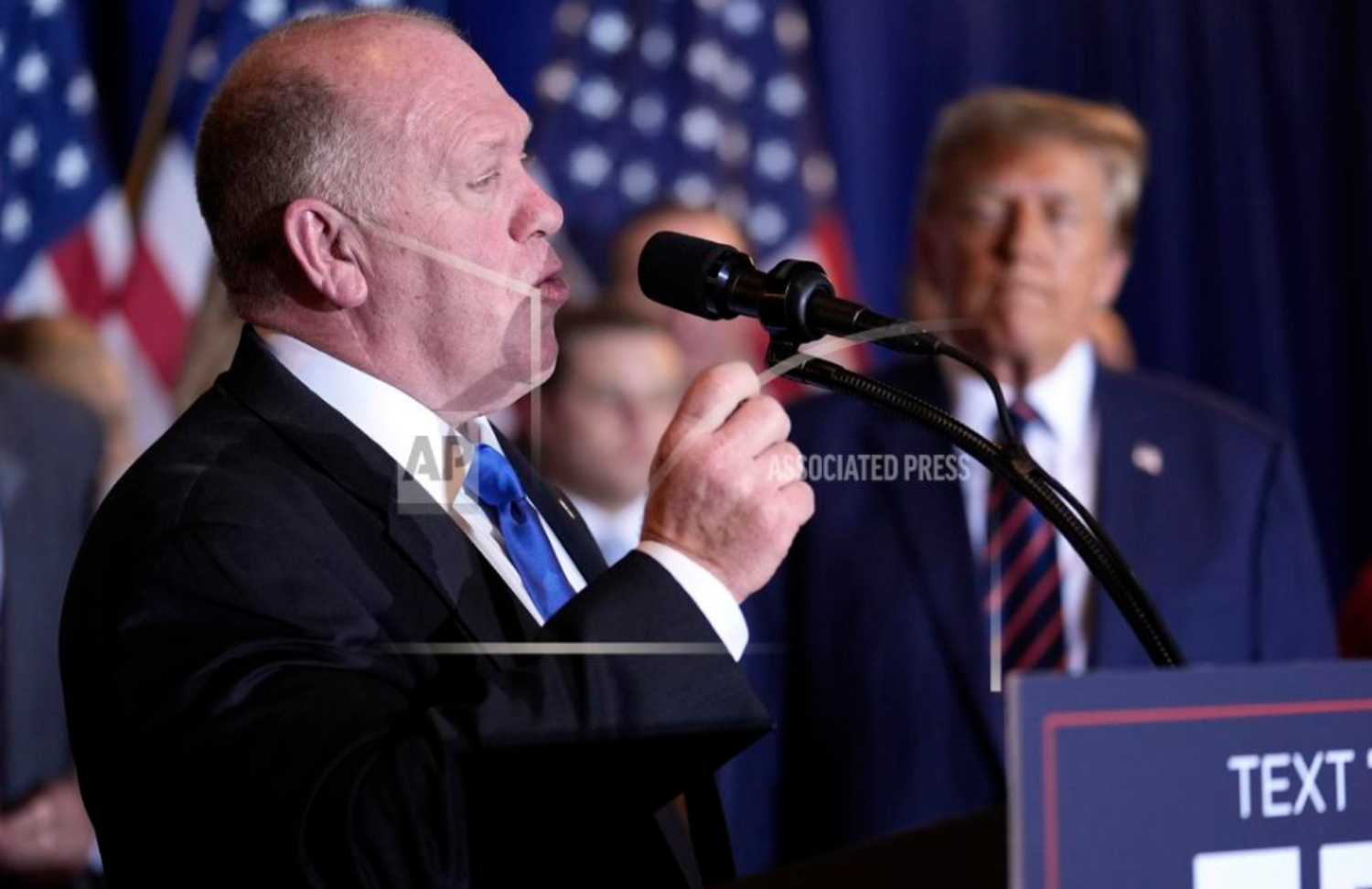-
Posts
10,711 -
Joined
-
Last visited
Content Type
Events
Forums
Downloads
Quizzes
Gallery
Blogs
Everything posted by Social Media
-
U.S. President Joe Biden announced a significant breakthrough, confirming that Israel and Lebanon have agreed to a ceasefire to halt fighting between Israeli forces and Hezbollah. In his address, Biden emphasized the shared desire for peace among the involved parties, stating, “Let’s be clear, Israel did not launch this war, Lebanese people did not seek that war either, nor did the United States.” The agreement marks the end of what Biden described as “the deadliest conflict between Israel and Hezbollah in decades.” He outlined his administration’s efforts to direct resources to the region, aiming to both support Israel’s defense and deter mutual adversaries at this critical juncture. It will take affect at 4am Israel time. The human toll of the conflict has been staggering. According to Biden, over 70,000 Israelis have been displaced, watching their communities devastated by the violence. Similarly, more than 300,000 Lebanese people have been forced into displacement. The ceasefire agreement is intended to be a permanent resolution, enabling civilians on both sides to safely return to their homes and rebuild their lives. The U.S., working alongside France and other allies, has pledged to ensure the agreement is fully implemented. Biden reiterated that Israel reserves the right to self-defense under international law should Hezbollah violate the ceasefire. Israel’s Prime Minister Benjamin Netanyahu, speaking after his security cabinet meeting, endorsed the U.S.-brokered deal. He outlined its strategic importance for Israel, signaling his government’s commitment to the agreement. Meanwhile, Lebanon’s Prime Minister Najib Mikati appealed to the international community to act swiftly to enforce the ceasefire, highlighting the urgency of the situation. The ceasefire comes as a blow to Hamas, which has sought to escalate regional tensions to pressure Israel on multiple fronts. With the Lebanon conflict de-escalating, Hamas now faces dwindling external support. This pivotal ceasefire agreement, if upheld, may serve as a foundation for more comprehensive peace efforts in the region, offering a glimpse of hope amidst longstanding turmoil. Based on a report by BBC News 2024-11-27
-
Donald Trump and his allies have embraced Argentina’s libertarian president, Javier Milei, as a political role model, citing his radical efforts to slash government spending and deregulate the economy. Milei, a chainsaw-wielding populist who rose to power with unorthodox charisma, is now a celebrated figure in right-wing circles in the United States, where his approach has been touted as an example for dismantling the so-called administrative state. Shortly after Trump’s election victory, Milei appeared at a black-tie event at Trump’s Mar-a-Lago resort, where he was warmly welcomed by Trump, tech mogul Elon Musk, and other luminaries. Known for his flamboyant persona, the Argentine leader danced to disco hits and declared, “The forces of heaven [were] on our side.” He was the first world leader to meet Trump in person after the November 5 election, underscoring their ideological camaraderie. Milei’s political style has drawn comparisons to Trump and Brazil’s former president Jair Bolsonaro. Like them, Milei has positioned himself as a disruptor, railing against perceived leftist elites and promising sweeping reforms. Since taking office, he has dramatically cut public spending, dissolved government ministries, and pushed deregulation with an intensity that has captivated Trump allies such as entrepreneur Vivek Ramaswamy. Ramaswamy has championed “Milei-style cuts, on steroids,” advocating mass federal layoffs in the U.S. While Trump has framed his critique of American governance as a response to crises akin to Argentina’s, the realities differ significantly. Argentina’s economic dysfunction, marked by decades of hyperinflation and chronic deficits, created fertile ground for Milei’s radical agenda. Despite Trump’s claims of a comparable crisis in the U.S., such parallels lack substantive support. However, both leaders share a strategy rooted in political grievance and a commitment to upending the perceived status quo, bolstered by influential financial elites. Milei has praised Musk as “a great fighter for the ideas of freedom” and a champion against what he calls “the socialist virus.” This alignment with Musk and other Silicon Valley figures reflects the merging of libertarian ideals with populist rhetoric, a combination that resonates deeply within Trump’s orbit. The implications of this alliance could reshape U.S.-Latin America relations. Christopher Sabatini of Chatham House predicts that Trump’s ties with Milei and other nationalist populists would shift White House policy toward partisan support for such leaders, marking a departure from traditional diplomacy. Sabatini warns this could deepen divisions in the Western Hemisphere, exacerbating the ideological rift between hard-right and centrist or leftist governments. Milei’s economic policies have yielded mixed results. Inflation in Argentina has fallen from nearly 300 percent, and the country has achieved a budget surplus for the first time in years. Government bonds are recovering, and economic activity shows signs of revival. However, these gains have come at a steep cost. With state welfare cutbacks, frozen pensions, and the closure of soup kitchens, poverty has soared to its highest levels in two decades. Kirsten Sehnbruch, a Latin America expert, described the situation as “absolutely horrendous,” highlighting the disproportionate burden on the poor. Despite Milei’s efforts, skepticism persists about the sustainability of his reforms and the potential benefits of a Trump presidency for Argentina. As Benjamin Gedan of the Wilson Center noted, U.S. businesses remain wary of Argentina’s volatile economy, and Trump’s protectionist tariffs could undermine Milei’s free-market agenda. Based on a report by WP News 2024-11-27
-
Elon Musk, owner of X (formerly Twitter) and adviser to U.S. President-elect Donald Trump, has reignited tensions with the British government, labeling the United Kingdom a “tyrannical police state” in a weekend tirade. Musk, who commands an audience of over 200 million on X, also shared a controversial documentary by far-right activist Tommy Robinson, raising fresh questions about his political stance and influence. Musk’s remarks come amid an ongoing feud with Britain’s new Labour government, led by Prime Minister Keir Starmer. He criticized the administration’s policies and posted a graph highlighting Starmer’s declining approval ratings, captioning it with: “The voice of the people is a great antidote.” Musk has consistently painted Britain under Starmer as a nation struggling with authoritarianism and inequities in its justice system. Over the summer, Musk became particularly vocal about the UK after the tragic killing of three schoolgirls in Southport. He criticized the police response, accused Starmer of presiding over a “two-tier” justice system biased against white citizens, and spread unverified claims about the incident. His rhetoric escalated, with Musk predicting “civil war is inevitable” in Britain. Downing Street dismissed his claims but notably excluded him from a high-profile investment summit in the fall. Efforts to repair relations between Musk and British officials have since been reported, though tensions remain. This weekend, Musk reignited controversy by questioning the imprisonment of Tommy Robinson, a British far-right figurehead jailed earlier this year for breaching a court order. Robinson had admitted to spreading false and defamatory claims about a Syrian refugee schoolboy in a documentary. Musk not only voiced skepticism about Robinson’s imprisonment but also shared the activist’s documentary with his followers, amplifying its reach significantly. Prime Minister Starmer’s office responded diplomatically to the uproar. A spokesperson stated that Starmer “looks forward to working with President Trump and his whole team, including Elon Musk,” to strengthen the UK-U.S. relationship. The statement sidestepped Musk’s direct criticisms and emphasized the importance of collaboration between the two nations. Musk’s increasingly combative stance toward Britain has raised eyebrows on both sides of the Atlantic. Critics argue that his comments risk inflaming social divisions and undermining international relations. His amplification of far-right narratives, in particular, has drawn condemnation, with many questioning the implications of his platform ownership on global discourse. As Musk continues to leverage his influence in the realms of politics and media, his remarks about the UK highlight the complex interplay between technology, power, and international diplomacy. For Britain, managing its relationship with Musk—a figure whose opinions can ripple across millions—presents a unique challenge amid shifting political dynamics. Based on a report by Politico 2024-11-27
-
UN Faces Backlash Over Dismissal of Genocide Advisor Alice Nderitu The United Nations, once a symbol of moral accountability, has faced growing criticism over its handling of sensitive global issues. Its recent decision to terminate Alice Wairimu Nderitu, Special Advisor on the Prevention of Genocide, has sparked significant debate. A Kenyan mediator and expert in peacebuilding, Ms. Nderitu’s removal stems from her refusal to label Israel’s military actions in Gaza as genocide. Ms. Nderitu has held her position since 2020, bringing a thoughtful approach to what she has called humanity's gravest crime. Her work emphasized precision in applying the term "genocide," a word first coined in 1944 by Raphael Lemkin to describe the systematic extermination of entire ethnic groups, such as the Holocaust, the Rwandan genocide, and the Bosnian massacres. Her office’s 2022 guidance stressed the importance of adhering to this strict definition, cautioning against its misuse due to the political and legal sensitivities it carries. In assessing Israel’s ongoing conflict with Hamas, Ms. Nderitu argued that it did not meet the definition of genocide. She acknowledged the tragic civilian toll but pointed to Israel's stated intent: dismantling a terrorist organization rather than eradicating an ethnic group. Israel, she noted, has taken significant steps to minimize civilian casualties, even as Hamas reportedly uses Palestinian civilians as shields, exploiting their deaths for propaganda. However, these views clashed with the narrative pushed by a faction within the UN. On November 14, the UN Special Committee to Investigate Israeli Practices issued a report alleging potential genocide in Gaza and apartheid in the West Bank. This report aligns with the stance of Volker Turk, the UN High Commissioner for Human Rights, who has consistently criticized Israel. Critics argue that these accusations are influenced by political bias, as evidenced by the committee's composition, which includes member states Malaysia and Senegal, countries with a history of hostility toward Israel. Ms. Nderitu’s dismissal has been framed as a contractual expiration, with a UN spokesperson asserting that genocide determinations fall under judicial bodies, not advisors. Yet, observers note that UN contracts are frequently renewed, and the Secretary-General holds the authority to extend her tenure. Her removal is widely seen as a political decision, signaling the influence of anti-Israel factions within the organization. Beyond the controversy surrounding Ms. Nderitu, the situation highlights broader concerns about the politicization of genocide accusations. As the term becomes a tool for propaganda, its moral weight diminishes, threatening its power to describe true atrocities. Ms. Nderitu’s unwavering commitment to truth, even at the cost of her position, is a testament to her integrity. Her case raises a critical question: can principled leadership survive in an increasingly polarized UN? Based on a report by WSJ 2024-11-27
-
Iran's Supreme Leader, Ayatollah Ali Khamenei, has issued a stark demand for the execution of Israeli Prime Minister Benjamin Netanyahu and other prominent leaders in response to recent developments at the International Criminal Court (ICC). The Supreme Leader's remarks came during a Monday gathering with members of the Basij, a volunteer force associated with Iran's Revolutionary Guard. Speaking to the group, Khamenei addressed the ICC's decision to issue arrest warrants for Netanyahu and former Israeli Defense Minister Yoav Gallant. He criticized their actions in recent conflicts, declaring, "What the Zionist regime did in Gaza and Lebanon is not a victory, it is a war crime. Now they have issued a warrant for their arrest. This is not enough!" His comments, as reported by the state-run IRNA news agency, escalated the call for accountability, stating, "Netanyahu and the criminal leaders of this regime must be sentenced to death." It is important to note that while the ICC in The Hague has issued these arrest warrants, it does not have the authority to impose death sentences, a fact underscoring the rhetoric's divergence from international legal norms. Khamenei also took the opportunity to bolster Iran's regional allies within the "Axis of Resistance," which includes groups such as the Palestinian militant organization Hamas and Lebanon's Hezbollah. Referring to the ongoing hostilities, he expressed confidence in their resilience and future strength. "The idiots should not think that bombing houses and hospitals in Gaza and Lebanon is a victory," he declared. "The enemy has not become winner in Gaza and Lebanon, and it will not be winner." Khamenei's fiery statements reflect the heightened tensions and deep divisions in the region, with both rhetoric and actions fueling ongoing conflict. Based on a report by Newsweek 2024-11-27
-
President Joe Biden faces an unprecedented and deeply personal decision: whether to pardon or commute the sentences of his son, Hunter Biden, who is set to be sentenced in two separate criminal cases this December. These cases—one involving a 2018 gun purchase while struggling with drug addiction and the other for tax fraud—pose not just legal and familial challenges but also political and historical ones. On December 12, Hunter Biden will appear in federal court in Delaware for sentencing on the gun charge, a case that has drawn scrutiny for its unusual nature. A few days later, he faces sentencing in Los Angeles for tax fraud, having pleaded guilty to failing to pay $1.4 million in taxes. Sentencing guidelines suggest Hunter could face over a year in prison for the gun charge and two to three years for tax fraud, though these recommendations are not binding. The possibility of President Biden intervening has been the subject of speculation for months. While he has publicly stated that he would not pardon his son—a stance reiterated by the White House following Donald Trump’s electoral victory—circumstances may prompt a reassessment. A commutation, which would reduce or eliminate prison time without erasing the conviction, could be a middle ground. Such an act would not absolve Hunter Biden but could spare him and the Biden family significant anguish. The cases against Hunter Biden have drawn criticism for their selective nature. Legal experts note that the gun charge is almost without precedent, and tax disputes are often resolved through fines or repayment rather than criminal prosecution. Many argue that political pressures, particularly from Trump and his allies, were instrumental in bringing these charges forward. The president may view this context as a justification for leniency. If Hunter Biden receives a probation sentence in Delaware, a presidential pardon or commutation might not be necessary. However, the tax fraud case in Los Angeles poses greater risks, as the financial sums involved and the more serious guidelines increase the likelihood of a prison term. President Biden’s decision will have profound implications for his legacy, the Democratic Party, and the broader perception of justice. His political standing has already taken a hit with Trump’s return to the White House, and many Democrats have blamed him for the party’s struggles in the 2024 election. But Biden may ultimately prioritize his role as a father over the political fallout. “This is his son,” underscores the core of the dilemma. Whether the president chooses to act or abstain, the decision will carry weighty consequences. A commutation, if issued, would demonstrate mercy in the face of familial hardship while avoiding the full implications of a pardon. Yet even this measured act would invite criticism, given the political climate and the scrutiny surrounding the Biden family. As sentencing dates approach, the president’s choice remains unclear, but it will undoubtedly stand as one of the most consequential and personal decisions of his career. Based on a report by Politico 2024-11-27
-
Billionaires are pouring vast amounts of money into the development of life-extending pills, sparking both hope and deep ethical concerns about the societal consequences. While the promise of delaying aging and extending lifespans may seem like a scientific marvel, some critics warn that such advancements could create a dystopian future dominated by "posh, privileged zombies" among the wealthy elite. Prominent figures such as Amazon founder Jeff Bezos, PayPal co-founder Peter Thiel, and ChatGPT’s creator Sam Altman are at the forefront of this anti-aging revolution. Bezos has reportedly invested $3 billion into Altos Labs, a biotechnology startup launched in 2021 alongside Russian-born billionaire Yuri Milner. Altos Labs is focused on biological reprogramming technology—a process that seeks to rejuvenate human cells in laboratories and potentially reverse aging. The endeavor has drawn comparisons to Calico Labs, another longevity-focused company launched by Google co-founder Larry Page in 2013. Thiel has invested in the Methuselah Foundation, a nonprofit organization dedicated to extending human lifespans through cutting-edge medical innovations. Methuselah aims to develop technologies for creating new organs, blood vessels, and bones, while also eliminating harmful biological structures and restoring cognitive and physical abilities in aging individuals. Meanwhile, Altman has channeled $180 million into Retro BioScience, a biotech firm committed to cellular reprogramming with a goal of extending human life by at least a decade. Retro BioScience claims it is less than four years away from proving its concept in clinical settings. The scientific community has made promising strides toward these goals. Researchers at Imperial College London and Duke-NUS Medical School in Singapore recently developed a drug that increased the lifespan of laboratory mice by nearly 25%. Their aim is to create treatments that keep cells younger and healthier for longer, potentially slowing down the aging process in humans. Despite the breakthroughs, many critics, including Phil Cleary, CEO of SmartWater Group, are deeply concerned about the implications of such advancements. Cleary warns that life-extending drugs could exacerbate global inequalities, leading to a world where only the wealthy can afford these treatments, effectively transforming the rich into "posh, privileged zombies." “Silicon Valley’s dogged pursuit of the fountain of youth is a fear-led, ego-driven folly that comes at a terrible humanitarian cost to the planet and to its most vulnerable inhabitants,” Cleary argues. He suggests that the billions invested in anti-aging technologies would be better spent addressing global issues such as child hunger and preventable diseases. According to Cleary, approximately 5 million children die each year from causes that could be treated or prevented with adequate funding and resources. He further criticizes the billionaires’ quest to conquer death, calling it a dangerous overreach: “A pill that keeps people alive, even by a few decades, would create an unjust, inequitable world packed with posh, privileged zombies—predominantly white, middle-class folk who could afford to buy the drugs in the first place.” Cleary, who authored the novel *Elixir* about the societal dangers of life-extending drugs, urges these moguls to "quit playing God" and redefine what it means to contribute meaningfully to humanity. The stakes are undeniably high. While the World Health Organization estimates that 100,000 people die from age-related diseases daily, scientists remain divided on whether aging can truly be slowed or reversed. As life-extending technologies edge closer to reality, the debate over their ethical and societal implications grows ever more urgent. Will they usher in a new era of medical marvels or deepen the chasm of inequality, leaving a trail of unintended consequences? Only time will tell. Based on a report by NYP 2024-11-27
-
The Home Office is introducing "common sense" reforms to the management of non-crime hate incidents (NCHIs) after a series of scandals and public outcry. These reforms, overseen by Home Secretary Yvette Cooper, aim to reduce confusion, restore public confidence in policing, and address concerns about free speech. Under the proposed changes, officers will only record NCHIs when there is a "clear risk" to community tensions, a significant shift from existing practices. The current system, initially designed to gather intelligence on incidents falling short of criminal behavior, has faced criticism for being overly expansive, diverting resources from essential police work, and stifling lawful expression. The issue recently made headlines when Essex Police investigated journalist Allison Pearson over a year-old tweet she had quickly deleted. Officers visited her home on Remembrance Day, informing her of an investigation into alleged racial hatred but failing to specify the offending post. The inquiry, which was dropped following advice from Crown Prosecution Service lawyers, underscored the system's flaws. Ms. Pearson described the experience as devastating, asserting that her tweet was not racist and expressing frustration over the lack of clarity surrounding the investigation. Policy Exchange, a think tank, has highlighted the inefficiency of the NCHI system, estimating that police spend over 60,000 hours annually on such incidents. Their report called for either the abolition of the system or a substantial reduction in recorded cases, emphasizing that policing should focus on addressing crimes like burglary, drug offenses, and violence. Lord Hogan-Howe, former Metropolitan Police Commissioner, supported the report, criticizing the subjective nature of NCHIs and calling for legislative oversight. Essex Police was singled out for logging a disproportionately high number of NCHIs—21.5 per 100 officers in a year compared to a national average of 8.9. Over 13,000 such incidents were recorded across the UK last year, with examples ranging from personal disputes to trivial insults, sparking public frustration. The updated guidance will emphasize that only incidents motivated by intentional hostility and posing a real risk of harm or criminal escalation should warrant scrutiny. Home Office sources affirmed that trivial complaints should not be recorded but noted the utility of NCHIs in tracking community tensions to prevent potential conflicts. Ms. Cooper acknowledged inconsistency in how the 43 police forces in England and Wales apply the current guidance, with some missing cases of antisemitism and Islamophobia. Alongside the College of Policing and the National Police Chiefs’ Council, the Home Office is drafting the revised guidelines to balance free expression with community safety. Critics argue that the system unfairly targets lawful opinions, undermining trust in the police. As Ms. Pearson remarked, “Normal people want police to come round when they have been burgled… not this madness.” The Policy Exchange report reiterated the need for reform, concluding that the NCHI regime distracts officers from their core mission of tackling serious crime and damages public perception of policing priorities. This overhaul reflects a commitment to ensuring that policing remains impartial and effective, focusing on genuine threats to public safety while protecting the fundamental right to free speech. Based on a report by Daily Mail 2024-11-27
-
A new CBS/YouGov poll reveals that a majority of Americans—approximately three out of five adults—approve of how President-elect Donald Trump is handling his transition to the presidency. Conducted between November 19 and 22 with a representative sample of 2,232 U.S. adults, the survey sheds light on the nation's mood following Trump’s election victory, which has been accompanied by controversial cabinet nominations and promises of sweeping policy changes. The poll indicates that 59% of respondents are generally positive about Trump’s transition efforts. Additionally, 55% of Americans report feeling either happy or satisfied with his victory. The reactions, however, highlight a sharp partisan divide. Among Republicans, an overwhelming 95% express optimism or excitement about Trump's presidency. In stark contrast, only 15% of Democrats share those sentiments, reflecting a deeply polarized political climate. This divide is also evident in the attitudes toward opposition to Trump. While some Democrats remain committed to resisting his agenda, only 44% report feeling motivated to oppose him. The remaining majority seem to exhibit a sense of fatigue or resignation as the transition unfolds. Trump's cabinet picks, which have drawn considerable media attention and public scrutiny, were also a focal point of the survey. Most self-identified Trump voters strongly support his nominees, including figures such as Robert F. Kennedy Jr. and Pete Hegseth. However, when all voters are considered, opinions are more mixed. A notable portion of respondents expressed uncertainty, indicating they lacked sufficient information about the nominees. Republicans appear split on how the confirmation process for Trump’s appointees should proceed. While 55% support the traditional Senate hearing process, 45% believe the nominees should be approved without hearings—a move that would break with longstanding procedural norms. On policy matters, Trump’s controversial proposals have gained significant traction among the public. For instance, 52% of respondents approve of his tariff plans aimed at reshaping trade policy. Similarly, 57% support implementing a program for mass deportations, one of Trump’s most polarizing campaign promises. These findings suggest that despite partisan divides, some of Trump’s policy ideas resonate with a broad swath of Americans. The CBS/YouGov poll’s margin of error is ±2.3 percentage points, offering a statistically reliable glimpse into public opinion during this critical period of political transition. While Trump enjoys significant approval among his base and some independents, the nation remains deeply divided as it braces for the dramatic changes his administration is likely to bring. Based on a report by AXIOS 2024-11-27
-
San Jose State University’s volleyball team finds itself at the center of a national controversy as it heads into the Mountain West Tournament. The team's season has been marked by forfeited matches, lawsuits, and debates over the inclusion of a transgender athlete, Blaire Fleming, whose presence has sparked polarized responses across the league. San Jose State, which finished the regular season with a 12-6 conference record, benefited from six forfeited matches, earning a first-round bye in the tournament. The Spartans are now guaranteed a spot in the semifinals, where they will face either Utah State or Boise State—two teams that refused to play against them during the season due to objections to Fleming’s participation. Boise State took the most drastic stance, forfeiting two scheduled matches, while Utah State forfeited one and has since joined a lawsuit seeking to have that loss overturned. The stakes are high for San Jose State, not just on the court but in navigating the social and legal challenges surrounding its inclusion in the tournament. Brooke Slusser, the team’s co-captain and a plaintiff in two lawsuits related to Fleming’s eligibility, expressed uncertainty about how the upcoming matches will unfold. “We’re just mostly wondering, are teams even gonna play us, period, if we go there?” Slusser told Fox News Digital. She noted the unpredictability of the situation, saying, “It seems like every few days it looks like it’ll be a fine day and everything’s normal, and then something else happens.” The Mountain West Conference has stated its commitment to ensuring fair competition while also preparing for potential forfeitures. A spokesperson confirmed that the conference would recognize San Jose State as the tournament champion if their opponent in the final were to forfeit. “If we get to a championship game, and it’s San Jose State vs. whoever, if that institution forfeits the game, then San Jose State wins that match, and they are tournament champions,” the spokesperson explained, adding that the team would become the automatic qualifier for the NCAA tournament. The controversy has also reached the courts, with a federal judge in Colorado holding an emergency hearing to address Utah State’s legal challenge. Plaintiffs argued that Fleming should not be allowed to compete in the tournament. The hearing, presided over by Judge Kato Crews, began with a contentious debate over pronouns and whether Fleming’s name should be used publicly for privacy reasons. Judge Crews ultimately decided to use she/her pronouns when referring to Fleming and promised a ruling in a “timely fashion.” Meanwhile, San Jose State has stood firmly behind Fleming and the team’s right to compete. A university spokesperson defended the inclusion of Fleming, citing compliance with NCAA and Mountain West Conference policies. “Our volleyball team members have earned the right to compete, and we are deeply disappointed for them and with them that they are being denied those opportunities through cancellations and forfeits,” the spokesperson said. “We are also proud of how they have persevered through these challenges on the court.” As the tournament approaches, the spotlight remains firmly fixed on San Jose State. With lingering questions about whether their opponents will take the court and a legal ruling pending, the team’s path forward is anything but clear. The controversy underscores the broader national debate surrounding transgender athletes in sports and highlights the complex intersection of inclusion, fairness, and competition in collegiate athletics. Based on a report by NYP 2024-11-27
-
Former President Donald Trump has announced plans to implement new tariffs on imports from Canada, Mexico, and China as part of his strategy to address the ongoing fentanyl crisis and immigration issues. Trump outlined his intentions in a post on Truth Social, framing the proposed tariffs as a bold step to combat drug trafficking and illegal immigration. On his first day back in office, Trump pledged to enact a 25% tariff on all products imported from Canada and Mexico. He described the measure as a response to what he called an "invasion" at the U.S. border. “On January 20th, as one of my many first Executive Orders, I will sign all necessary documents to charge Mexico and Canada a 25% Tariff on ALL products coming into the United States, and its ridiculous Open Borders,” he stated. “This Tariff will remain in effect until such time as Drugs, in particular Fentanyl, and all Illegal Aliens stop this Invasion of our Country!” The plan extends beyond North America, with Trump indicating his intention to impose additional tariffs on Chinese goods. He accused China of failing to curb the flow of fentanyl-related substances into the United States. “I have had many talks with China about the massive amounts of drugs, in particular Fentanyl, being sent into the United States — But to no avail,” Trump wrote. “Until such time as they stop, we will be charging China an additional 10% Tariff, above any additional Tariffs, on all of their many products coming into the United States of America.” Canada and Mexico are vital trading partners for the U.S., collectively accounting for nearly 30% of total trade volumes. Tariffs on goods such as vehicles, dairy products, paper, and building supplies would likely disrupt supply chains and increase costs for American businesses and consumers. China, another critical trade partner, would also face significant economic consequences under Trump’s proposed tariffs. High-level discussions between the U.S. and China about the fentanyl crisis have been ongoing, with President Joe Biden and Chinese President Xi Jinping meeting last year to resume counternarcotics cooperation. Biden has also increased tariffs on Chinese goods, including a significant rise on electric vehicles from 25% to 100% earlier this year. Trump’s proposals build on his past trade policies, including his 2020 campaign declaration to implement a 20% blanket tariff on all imports and a 60% tariff on Chinese goods. During a presidential debate against then-Democratic nominee Kamala Harris, Trump defended his tariff plans, saying, “Other countries are going to finally, after 75 years, pay us back for all that we’ve done for the world, and the tariff will be substantial.” Harris criticized the tariffs as a “sales tax on the American people.” Critics argue that these tariffs could have severe economic repercussions. Economists estimate they would cost Americans $78 billion annually. For instance, a $50 pair of shoes could rise to $65, and a $2,000 mattress could increase by nearly $200. Retailers such as Five Below, Wayfair, and Dollar Tree are particularly vulnerable in a trade war scenario, according to a CNBC analysis. Trump’s tariff plans could also conflict with the U.S.-Mexico-Canada Agreement (USMCA), a trade pact he championed during his first term. Arturo Sarukhan, Mexico’s former ambassador to the U.S., noted that the proposed measures would likely violate the agreement, which went into effect in July 2020. While Trump's proposals are likely to face pushback from business leaders and lawmakers, they reflect a continuation of his "America First" trade policies that defined his earlier administration. As the campaign trail unfolds, these controversial measures are set to ignite heated debate over their potential impact on the U.S. economy and international trade relations. Based on a report by NBC News 2024-11-27
- 174 replies
-
- 10
-

-

-

-

-
A tragic incident has sent shockwaves through Herndon, Virginia, where a Honduran national residing in the U.S. illegally has been charged with the town’s first stranger rape in over 12 years. The accused, 31-year-old Denis Humberto Navarette Romero, allegedly assaulted a woman on a popular hiking trail just days after being released from jail on a separate sex crime charge. “This is the only stranger rape that we have had in the town in my more than 12 years as chief of police,” said Herndon Police Chief Maggie DeBoard during a press conference. The crime has sparked outrage and renewed scrutiny over local policies regarding undocumented individuals. Romero’s arrest comes amid criticism from Virginia Governor Glenn Youngkin, who lambasted Fairfax County officials for releasing Romero into the community instead of transferring him to Immigration and Customs Enforcement (ICE). “I am heartsick for this victim and outraged that local Fairfax County officials recklessly release violent illegal immigrants who should have been prosecuted and deported,” Youngkin told *The Post*. He further decried the decision as a dereliction of duty, stating, “Prioritizing violent illegal immigrants over the safety of Fairfax residents is unacceptable.” Romero, whose criminal record spans years, was apprehended Monday night on charges of rape and intent to defile. Police say he attacked his victim on the Washington and Old Dominion Trail, a busy path just 25 miles from Washington, D.C. According to authorities, Romero grabbed the woman, forced her to the ground, and raped her before officers arrived and arrested him minutes later. The arrest followed his release from jail only four days earlier, after serving half of a 50-day sentence for indecent exposure. Authorities cited “good behavior” for his early release. “What is disturbing is the number of times this individual has been arrested and released,” Chief DeBoard said. “He has continued to reoffend, and his behavior has escalated to a rape in a very public area.” Romero’s criminal history paints a troubling pattern. His first reported offense in Herndon dates back to 2018, when he allegedly fondled a 14-year-old girl. A subsequent investigation uncovered earlier incidents of indecent exposure involving two other minors, but the case was closed without charges when the victims’ families declined to cooperate with law enforcement. In 2022, Romero escalated his behavior, choking a police officer who responded to an incident where he slapped a woman’s rear at a local restaurant. Despite initially facing a felony assault charge, prosecutors downgraded it to a misdemeanor in exchange for a guilty plea. His most recent conviction stemmed from an October indecent exposure incident reported by Jennifer Pugh. Speaking to *Fox 5 DC*, Pugh described her encounter with Romero. “He kept coming trying to grab my dog. Then he was trying to come after me... he started pulling his stuff out,” she recounted. Authorities have expressed frustration over the systemic failures that allowed Romero to remain at large. Complicated by inconsistent spellings of his name across multiple arrests, law enforcement faced challenges piecing together his extensive criminal history. According to police, at least three variations of his name are tied to the same FBI records. The Fairfax County Sheriff’s Office claimed it notified ICE of Romero’s status during his previous incarcerations, but no detainers or warrants were issued, leaving local officials to release him each time. Chief DeBoard lamented these gaps in the system. “I tell the community you should feel safe here, and I do believe they are safe here... but when you have cases like this, I look at this and see some part of the system... if it was all working together, this never would have happened.” Governor Youngkin echoed these frustrations, expressing optimism that changes in federal leadership will address these shortcomings. “When President Trump takes office, the political posturing will end and localities will cooperate with ICE to protect Virginians,” he said. As Romero awaits a preliminary hearing from the Fairfax County Adult Detention Center, the incident underscores the complexities and challenges of ensuring public safety amid overlapping local, state, and federal policies. Based on a report by NYP 2024-11-26
-
Veteran restaurant critic Jay Rayner has leveled scathing accusations against *The Guardian*, claiming the Left-leaning newspaper employs anti-Semites and criticizing its editor, Katharine Viner, for her alleged reluctance to confront them. Rayner’s remarks come shortly after he announced his resignation from *The Observer*, *The Guardian*'s sister Sunday paper, where he worked for nearly three decades. Rayner shared his criticisms in a message to friends on Facebook, describing his experience as a Jewish employee at the publication as "uncomfortable, at times excruciating." He directly called out Viner, accusing her of failing to tackle anti-Semitism within the organization. “Viner likes to deny it, but there are anti-Semites on the daily’s staff, and she has not had the courage to face them down,” he wrote. Rayner disclosed that over the years, he sent emails to Viner each time he believed *The Guardian* had crossed a line with its coverage of Jewish issues. “For years now I have made a point of sending her a back channel email each time the *Guardian* has published another outrage. It will be a joy to know that I’m not a part of that any more,” he said. His departure is reportedly tied, at least in part, to frustrations over the newspaper’s handling of anti-Semitism. Rayner lambasted *The Guardian*'s opinion section, calling it “a juvenile hellscape of salami-sliced identity grievance politics.” The publication has faced multiple controversies in recent years under Viner’s leadership. Among them was an allegedly anti-Semitic cartoon of Richard Sharp, then the BBC director-general, and an opinion piece titled “Israel must stop weaponising the Holocaust.” The paper also dismissed cartoonist Steve Bell last year over an unpublished cartoon of Israeli Prime Minister Benjamin Netanyahu, which some interpreted as referencing Shylock, the Jewish character from Shakespeare’s *The Merchant of Venice*. Bell defended his work, claiming it was “impossible to draw this subject for *The Guardian* now without being falsely accused of using ‘anti-Semitic tropes.’” Rayner’s criticisms extend beyond issues of anti-Semitism. He expressed dismay at Viner’s strategic decisions, particularly her push to sell *The Observer* to Tortoise Media, a financially struggling outlet founded by former BBC News director James Harding. The proposed sale has ignited outrage among journalists at *The Guardian* and *The Observer*, leading to planned industrial action. The National Union of Journalists (NUJ) has branded the sale a “betrayal” and accused management of attempting to intimidate potential strikers by asking staff whether they plan to participate in the walkout. In response to the growing unrest, Viner recently invited employees to meetings in her office to “hear your views and share some of my thoughts” on the proposed sale. However, the staff’s anger and Rayner’s pointed critique suggest deepening fractures within the organization. Rayner’s public condemnation adds another layer to *The Guardian*'s ongoing challenges, highlighting tensions between its progressive values and its ability to navigate sensitive issues within its ranks. Based on a report by Daily Telegraph 2024-11-26
-
As Kamala Harris prepares to leave the White House following her defeat to President-elect Donald Trump, questions abound regarding her next move. The outgoing vice president remains a central figure within the Democratic Party, with many speculating about her future in politics and beyond. Polling suggests a significant portion of Democrats would like to see Harris make another run for the presidency in 2028, despite her recent loss. Others believe she might pursue alternative political opportunities, such as a bid for governor of California, or focus on non-electoral avenues to counter the Trump administration. Democratic strategist Kate Maeder highlighted Harris's enduring influence: “She still has a long career ahead of her. She’s young for politics in this country, and I think that folks are really excited to see what she does next, because she’s built such a powerful following around her, and I think that that will carry through after the election.” The 2024 election was a devastating blow for Democrats. Trump not only secured victory in all the key swing states but also made significant gains in traditionally blue regions. With the Republican Party taking control of both chambers of Congress, they will dominate Washington’s political landscape next year. In her concession speech, Harris assured supporters that she remains committed to the ideals that propelled her political rise. “The fight that fueled” her campaign is far from over, she declared, promising to remain engaged in efforts to advance her vision for the nation. “She still has a fight in her,” Maeder reiterated. “Whether it’s around public policy or it’s fighting the good fight in the private sector, I think it’s left to be seen.” Harris joins the ranks of a few vice presidents in modern history who sought the presidency but fell short. Joel Goldstein, an expert on the vice presidency at Saint Louis University, pointed out that their subsequent trajectories vary greatly. Richard Nixon famously lost the California governor’s race before staging a political comeback to win the presidency in 1968. Hubert Humphrey returned to the Senate, while Al Gore left politics to focus on environmental activism, ultimately earning the Nobel Peace Prize. If Harris chooses to run again in 2028, she would begin as a leading contender, according to Jim Kessler of the Third Way think tank. “I don’t think a prohibitive favorite, but definitely someone who would start out on top, would be able to raise money, is known by voters, and who acquitted herself very well in her short campaign against Trump,” he said. However, the Democratic field for 2028 is already shaping up to be competitive, with figures like California Governor Gavin Newsom, Michigan Governor Gretchen Whitmer, Pennsylvania Governor Josh Shapiro, and Transportation Secretary Pete Buttigieg likely to vie for the nomination. Democratic strategist Fred Hicks cautioned that such a crowded field could pose a challenge for Harris. “I think she would struggle to win a primary in 2028... when you have so many of the people sitting out there who are going to run, likely to run,” he said. Nevertheless, Hicks argued that Harris could still play a crucial role in shaping the Democratic resistance, adding, “She can and should become the face of the Democratic resistance.” Attorney and strategist Abou Amara suggested that Harris’s next steps might include another run for office, a gubernatorial bid, or a move into advocacy. Whatever she chooses, Amara emphasized the importance of preserving her options. “Another part of this question is: What does she want her capstone to be on her political career?” he asked. As the dust settles on the 2024 election, Harris is also expected to reflect on her campaign and contribute to the Democratic Party’s introspection. Echoing Hillary Clinton’s post-2016 memoir *What Happened*, Harris may choose to write or speak publicly about her experiences and perspectives. “I think that will absolutely be part of the next eight to 12 months, to decompress what happened,” Amara predicted. “I expect her, whether it be through speeches or writing a book, to really lay out her understanding of what happened. Because Democrats are going to squabble back and forth with different theories … but I think it would be important to hear directly from her.” Though her next move remains uncertain, Kamala Harris’s political journey is far from over. Whether through public service, advocacy, or another presidential run, she is poised to remain a formidable presence in American politics. Based on a report by The Hill 2024-11-26
-
A clandestine operation has brought hundreds of Yemeni men into the conflict in Ukraine, illustrating the expanding international dimensions of the war. Recruited through dubious means, these individuals were lured with promises of high-paying jobs and the prospect of Russian citizenship, only to find themselves forced into Russia’s military and deployed to the front lines. This operation has exposed growing ties between Russia and Yemen’s Houthi rebel group, deepening concerns about Moscow’s alliances in the Middle East. Recruits told the *Financial Times* they were initially drawn in by a Houthi-linked company. Upon arrival in Russia, their fates took a darker turn. Nabil, one of the Yemeni men, explained how he had hoped to secure a lucrative job in security or engineering to support his education. Instead, he found himself conscripted into the Russian army, with no understanding of the enlistment contract he was forced to sign. Nabil described harrowing conditions in Ukraine, recounting life under bombardment and the exhaustion of building bomb shelters in a mine-riddled forest. "We don’t even get five minutes to rest, we are so tired," he shared in a video, adding that his group lacked basic winter clothing. Another recruit, Abdullah, shared a similarly grim experience. Promised a $10,000 bonus, $2,000 monthly salary, and eventual Russian citizenship for manufacturing drones, he arrived in Moscow on September 18. There, he was forcibly taken to a remote facility where threats and gunfire coerced him into signing a contract he couldn’t read. "I signed it because I was scared," Abdullah admitted. Shortly after, he and others were sent to Ukraine with minimal training. Many of his peers didn’t survive, victims of what he called "scammers who traffic in human beings." The recruitment operation appears to be linked to Al Jabri General Trading & Investment Co, a company registered in Oman and founded by Abdulwali Abdo Hassan al-Jabri, a prominent Houthi politician. Contracts seen by the *Financial Times* identified Al Jabri’s involvement, but attempts to contact the company went unanswered. Al Jabri, a high-ranking official in the Houthi-allied army, has a contentious history. Sentenced to death in absentia by Yemen’s pro-Saudi government in 2021, he remains a key figure in Houthi politics and military activities. The Houthis, backed by Iran, have increasingly aligned with Russia as Moscow seeks allies in its confrontation with the West. US special envoy for Yemen Tim Lenderking confirmed active contacts between Russia and the Houthis, including discussions of weapons transfers. "The kinds of weapons that are being discussed are very alarming," Lenderking said, warning that advanced arms could enable the Houthis to expand their attacks beyond the Red Sea. Experts argue that Yemen’s poverty and instability make it an easy recruiting ground. "One thing Russia needs is soldiers, and it’s clear the Houthis are recruiting for them," said Farea al Muslimi of Chatham House. He described the effort as a calculated overture by the Houthis to deepen ties with Moscow. While Yemeni mercenaries are the latest to be drawn into Russia’s war, they are not alone. The conflict has reportedly seen fighters from Nepal, India, and even 12,000 North Korean troops deployed to support Russian operations. This internationalization of the war underscores Moscow’s determination to sustain its campaign without resorting to full mobilization. Based on a report by FInancial Times 2024-11-26
-
Veteran political analyst and best-selling author Mark Halperin recently spoke on "The Brian Kilmeade Show," highlighting what he perceives as a lack of understanding among liberals and "Never Trump" Republicans regarding Donald Trump’s enduring appeal. Halperin warned that Trump’s ability to command a substantial portion of the electorate should not be underestimated, particularly in a matchup against Vice President Kamala Harris. Halperin expressed frustration over the inability of many in the media and political circles to grasp Trump’s influence. "I really pleaded with everyone I knew who was a Never Trumper, someone with Trump Derangement Syndrome or super opposed to Donald Trump," he explained. "I said he’s going to get 47% of the vote, and he might get 50. But the difference between 47 and 50 is, you know, several million Americans. You have to respect the fact that tens of millions of people are going to vote for him. And you have to be prepared for that." He pointed out that while Trump’s behavior, rhetoric, and conduct have undeniably fueled opposition, the disdain for him often transcends logical critique. "There’s something about Donald Trump that sets them off," Halperin observed, adding that this reaction is further magnified by what he calls the "dominant media." According to Halperin, this media landscape has created a "fantasy world" where issues like President Joe Biden’s acuity, Vice President Harris's qualifications, and the implications of an open border are either downplayed or ignored altogether. Halperin also critiqued the media’s handling of key issues, such as the prosecution of Trump, efforts to exclude him and Robert F. Kennedy Jr. from ballots, and the administration’s perceived lack of urgency in addressing the murder of American citizens by undocumented individuals. "All these things add up to a blue bubble that they just can’t see," Halperin stated. He noted that many Trump supporters can readily articulate why the left opposes the former president. However, when asked to explain Trump’s appeal, his critics often struggle. "I see this all the time. I’ll say to a Trump supporter, why does the left not like Donald Trump? And they can explain it very easily… But most people on the left, if you say, why do people like Donald Trump? They’re paralyzed. They can’t answer the question," Halperin said. He believes this disconnect stems from an inability to acknowledge the perspectives of millions of Americans who view Trump differently. The media’s readiness to cover a potential second Trump presidency has stirred controversy within its ranks. A source at MSNBC reacted strongly, calling the shift "cowardice" and accusing the network of capitulating to Trump’s influence. "Doing exactly what [anti-Trump historian] Tim Snyder warns on our air not to do: obey in advance. It’s disgusting but frankly unsurprising," the source said, adding that many MSNBC staff members now view the network’s prominent anchors with disdain. Public reactions have been equally sharp. MSNBC contributor Jennifer Rubin labeled the approach "disgusting" on Bluesky, while host Katie Phang indirectly criticized it by posting on X, "Normalizing Trump is a bad idea. Period." The internal discord and vocal objections highlight the ongoing polarization surrounding Trump, even as his political resurgence looms. Halperin’s insights underscore the deep divisions in American media and politics, where recognizing and understanding opposing viewpoints remains a significant challenge. Based on a report by NYP 2024-11-26
-
In her first term as a representative for Delaware, Sarah McBride has already faced targeted attacks from Republicans over her identity as the first openly transgender person elected to Congress. Speaking on MSNBC, McBride emphasized that her campaign wasn’t about making history but about serving her constituents, saying, “I didn’t run to be a first. I didn’t run to make history. I ran to serve this state that I love and to deliver for Delawareans.” These comments came amid Republican efforts to pass a resolution banning members of Congress from using single-sex facilities inconsistent with their biological sex. Representative Nancy Mace, R-S.C., who sponsored the measure, openly admitted that it was aimed at McBride. Speaker Mike Johnson, R-La., supported the resolution, asserting that biological sex should determine restroom use in the Capitol. Johnson added, “Each Member office has its own private restroom, and unisex restrooms are available throughout the Capitol.” McBride, however, dismissed these efforts as a distraction from more pressing issues. “I think we are all united that attempts to attack a vulnerable community are not only mean-spirited, but really an attempt to misdirect,” she said in an interview with CBS News’ *Face the Nation*. She argued that such actions serve to divert attention from Republican policies that she claims harm workers, seniors, and families. “Every single time we hear them say the word ‘trans,’ look what they’re doing with their right hand,” McBride stated. “Look at what they’re doing to pick the pocket of American workers, to fleece seniors by privatizing Social Security and Medicare.” On MSNBC’s *The Weekend*, McBride further described the Republican focus on her bathroom use as “a lot of noise.” She reaffirmed her commitment to her legislative priorities, saying, “Over the last two years, over the last two weeks, there’s certainly been a lot of noise around me, but I’ve remained focused.” The backlash from Republicans has drawn significant support for McBride from Democrats and other allies. Senator Tammy Duckworth, D-Ill., called the bathroom policy “disgusting and wrong” and criticized the GOP for prioritizing such issues over the country’s larger challenges. “We have a lot more to worry about than where somebody goes to pee,” Duckworth told CNN. House Minority Leader Hakeem Jeffries also denounced the GOP’s actions, accusing them of “bullying” McBride instead of fostering bipartisan collaboration. “This incoming small House Republican Conference majority is beginning to transition to the new Congress by bullying a member of Congress,” Jeffries said. “This is what we’re doing? This is your priority? That you want to bully a member of Congress, as opposed to welcoming her to join this body so all of us can work together to get things done and deliver real results for the American people.” The Biden administration has also voiced its support for McBride. White House Press Secretary Karine Jean-Pierre stated that President Joe Biden is “very proud” of her. Jean-Pierre echoed McBride’s focus on substantive issues, quoting the congresswoman-elect: “I’m not here to fight about bathrooms. I’m here to fight for Delawareans and to bring down costs facing families.” Despite the controversy, McBride remains committed to her mission, urging a focus on policy and progress rather than divisive cultural debates. Based on a report by NBC News 2024-11-26
-
A former commissioner of the Metropolitan Police, Lord Hogan-Howe, has called on the Government to reassess the role of non-crime hate incidents in policing. His remarks follow the release of a Policy Exchange report revealing that such incidents consume an estimated 60,000 hours of police time annually, detracting from efforts to address actual crimes. The report, published by the think tank Policy Exchange, has sparked fresh debate about the utility and consequences of recording non-crime hate incidents, which do not meet the threshold of criminality but are documented by police. In light of the findings, Lord Hogan-Howe urged ministers to carefully examine the report and determine whether the police should even engage with such matters. This renewed scrutiny coincides with a controversial investigation into Telegraph journalist Allison Pearson. Essex Police visited Pearson at her home on Remembrance Sunday, informing her that she was being investigated for allegedly inciting racial hatred in a social media post from the previous year. The investigation, which was later dropped, prompted widespread criticism of the non-crime hate incident system. Lord Hogan-Howe, the highest-ranking police figure to speak out against the practice, acknowledged the original intention behind recording such incidents was well-meaning. The measure was introduced in the aftermath of Stephen Lawrence's murder to track and prevent incidents that could escalate into hate crimes. However, he argued the policy had evolved without adequate debate over its effectiveness. “The original aim was well-intentioned, but the implementation has raised questions,” Hogan-Howe remarked. He explained that determining what constitutes a non-crime hate incident is inherently subjective, leading to inconsistent practices. He added, “Parliament, rather than the College of Policing, must decide whether the police should be investigating people for non-crime hate incidents and how they are recorded.” The peer expressed concern over the public's perception of police involvement in such cases, noting that officers have no formal authority to investigate or question individuals about incidents that fall short of criminality. The Policy Exchange report highlighted significant resource implications, estimating that police officers investigate roughly 13,000 non-crime hate incidents annually. The report also pointed out stark disparities in how police forces handle these cases. Essex Police, the force that investigated Pearson, reportedly spent more time per officer on non-crime hate incidents than any other major force. In 2022, Essex Police recorded 21.5 non-crime hate incidents per 100 officers annually, double the national rate and significantly higher than forces such as the Metropolitan Police, Greater Manchester Police, and West Yorkshire Police. Lord Hogan-Howe emphasized the importance of addressing the findings, stating, “I would urge ministers to look closely at this Policy Exchange report to inform the path they intend to take.” As the debate intensifies, the question remains whether non-crime hate incidents warrant continued attention from police forces or whether resources would be better allocated to tackling more serious criminal activities. Based on a report by Daily Telegraph 2024-11-26
-
Maureen Rainford, a 54-year-old social worker and mother of three from Romford, Essex, tragically died during a retreat in the Bolivian Amazon after consuming a brew reportedly containing the psychedelic drug ayahuasca. The incident occurred at the Ayahuasca and San Pedro Pisatahua Retreat, a remote eco-lodge promoting itself as a "sacred space" for healing, expanding consciousness, and connecting with nature through plant medicines like ayahuasca. Rainford had paid £800 for the ten-day retreat last month, hoping for a transformative experience in the Amazon rainforest. However, just ten minutes after drinking the ayahuasca tea, witnesses reported that she began feeling unwell. Her heart rate and breathing quickly declined, and despite an hour-long attempt to resuscitate her, she passed away before a doctor could arrive. Ayahuasca, a plant-based psychedelic traditionally used by indigenous tribes in South America for spiritual and medicinal purposes, is illegal in the UK as a Class A drug. The brew, known for inducing intense hallucinations, is made from combining leaves and stalks of native plants. Its recent rise in popularity has attracted many Western tourists seeking alternative therapies. Rainford’s daughter Rochel, 32, revealed that staff at the retreat informed her of a "medical emergency" that led to her mother’s death. A post-mortem examination conducted in the UK confirmed that Rainford had suffered a heart attack. Rochel described her mother as previously "fit and healthy" and expressed concerns about the lack of medical safeguards at the retreat. "There should be a trained medic on standby when hallucinogenic drugs are being handed out in a remote area," Rochel stated. She criticized retreats like Pisatahua, warning others about being drawn in by "glossy brochures selling a dream." The retreat, however, denied any connection between Rainford’s death and ayahuasca, attributing it solely to a medical emergency. The tragedy has reignited debates about the safety of such retreats and the lack of regulation surrounding the use of powerful psychedelics in remote locations. Ayahuasca’s growing global prominence has been fueled by testimonials from celebrities and figures like Prince Harry, who, in his memoir *Spare*, admitted to using the drug for therapeutic purposes to address PTSD linked to his mother’s death. "It didn’t simply allow me to escape reality for a while, they let me redefine reality," he wrote, while cautioning against recreational use. Rainford’s funeral was held last week after her body was returned to the UK with assistance from the British consulate. The UK Foreign Office and the Ayahuasca and San Pedro Pisatahua Retreat have been contacted for further comments on the incident. Meanwhile, Rochel hopes her mother’s story will serve as a warning to those seeking solace or healing in similar settings, emphasizing the importance of safety and medical oversight. Based on a report by Daily Telegraph 2024-11-26
-
Tom Homan, President-elect Donald Trump’s pick for "border czar," has made a bold promise: federal funding will be slashed for states that refuse to comply with the administration’s immigration policies. Homan’s remarks came during an interview on Mark Levin’s Life, Liberty and Levin, where he also disclosed the personal toll of his role, including death threats and the need to relocate his family for their safety. Homan wholeheartedly agreed. “And that’s going to happen. Guaranteed, President Trump is going to do that,” he confirmed, signaling the administration’s intent to use financial consequences as a tool to enforce compliance. During the interview, Homan shared how his position has drawn significant backlash. “This administration has turned this world upside down, so now I’m being attacked,” he said. “I got death threats; my family’s not even living in my home right now.” While he refrained from providing specific details, his comments reflected the personal risks tied to his role. Despite the threats, Homan remained resolute, urging detractors to prioritize community safety over political grievances. “You can hate Trump all you want, but you gotta love your community more than you hate President Trump,” he asserted. Homan’s firm stance is not new. Speaking on Fox & Friends last week, he issued a blunt warning to Democratic governors opposing the administration’s immigration agenda: “Get the hell out of the way and don’t cross that line.” As the Trump administration prepares to take office, Homan’s comments offer a glimpse into its uncompromising approach to immigration enforcement. With promises of federal funding cuts and fiery rhetoric, the administration’s plans are already stirring fierce debate and resistance. Whether Homan’s strategy will compel state and local governments to align with federal policies remains to be seen, but the stakes are clearly high for all parties involved. Based on a report by Daily Beast 2024-11-26
-
Unidentified drones were spotted last week over three British airbases that host United States Air Force operations, creating a stir among military officials. Despite growing speculation, neither the UK nor the US has provided details about the origin or intent of these drones. The sightings occurred between Wednesday and Saturday at Royal Air Force bases Mildenhall, Feltwell, and Lakenheath, all located in eastern England. These bases are integral to American military operations, with Mildenhall hosting the 100th Air Refueling Wing and Lakenheath serving as the home of the 48th Fighter Wing, renowned for its combat missions over Iraq and Afghanistan. Feltwell is primarily a logistics and housing site. “The number of (unmanned aircraft systems) fluctuated, and they ranged in size and configuration,” said a spokesperson for the US Air Forces in Europe. Despite the incursions, “installation leaders determined that none of the incursions impacted base residents or critical infrastructure,” the spokesperson added. However, they refrained from disclosing whether the drones posed a deliberate threat. The UK Ministry of Defense emphasized the importance of countermeasures. “We take threats seriously and maintain robust measures at defense sites,” said a representative. These measures include “counter-drone security capabilities.” Even so, it remains unclear if the drones were hostile or simply a case of unauthorized surveillance. Neither government has commented further, leaving many questions unanswered. The incidents follow a report from *The Wall Street Journal* in October, which noted a pattern of similar drone sightings over US military bases in Virginia and Nevada over the past year. Some officials suspect that these drones could be linked to espionage activities by Russian or Chinese agents targeting American military assets. However, under current regulations, drones cannot be shot down solely for surveillance due to the potential safety risks to civilians. This limitation has fueled debates about how best to respond to such incursions in the future. These recent sightings underscore the strategic importance of the affected bases. Mildenhall is the only permanent US wing in Europe conducting midair refueling missions, while Lakenheath remains a cornerstone of American combat capability in the region. With growing concerns over national security, the events highlight the vulnerabilities posed by unmanned aerial systems in sensitive military zones. While officials from both nations remain tight-lipped, the mystery surrounding the drones continues to raise questions about the adequacy of current defenses against increasingly sophisticated airborne threats. Based on a report by NYP 2024-11-25
-
A DHL cargo plane crashed into a residential house in Vilnius, Lithuania, sparking concerns over possible sabotage just a month after European intelligence agencies warned of Russian attempts to disrupt cargo flights using small bombs. The crash claimed the life of one crew member and left three others injured. The crash in Vilnius has reignited fears about the potential for sabotage. Konstantin von Notz, chairman of the German Parliamentary Intelligence Service Commission, underscored the urgency of uncovering the truth. “Given the known acts of sabotage using incendiary devices on DHL cargo, as well as Leipzig airport, this accident must be immediately and thoroughly investigated,” he stated. Despite these concerns, Lithuanian officials have urged caution in drawing conclusions. Laurynas Kasciunas, Lithuania’s defense minister, stated there was no evidence linking the crash to sabotage or terrorism. “So far there are no signs or facts that this is a sabotage or terrorist act, there really aren’t any. It is said that there was some kind of external influence on the plane,” he remarked. Images from the crash site revealed a devastating scene, with smoke rising from the destroyed house and fragments of the aircraft’s cockpit and engine scattered nearby. A video from a nearby industrial yard captured the aircraft’s final moments, showing it flying low before crashing into the residential area, igniting a massive explosion and fireball. Investigators have yet to determine whether technical or human error played a role in the crash. Kasciunas noted that the inquiry could take up to a week to provide initial findings. In the meantime, the incident has intensified calls for vigilance in addressing the security threats facing international cargo operations. Based on a report by Daily Telegraph 2024-11-26
-
As the specter of nuclear conflict looms larger than it has in decades, global leaders face a world where mutually assured destruction (MAD) might once again be the sole deterrent against catastrophic warfare. The escalating threats of nuclear weapons usage, paired with the dismantling of arms control agreements, are creating a precarious new global order where the fear of annihilation remains humanity’s last line of defense. Russian President Vladimir Putin has added a chilling layer to the Russia-Ukraine conflict by openly suggesting the potential use of tactical nuclear weapons. This marks a stark shift from the post-Cold War era when nuclear threats seemed to have receded into history. Putin’s rhetoric has angered the West, but his actions are part of a broader global trend of nuclear rearmament and brinkmanship. As international détente crumbles, countries are racing to modernize arsenals, explore nuclear programs, and exploit the fear such weapons inspire. The nuclear ambitions of nations like Iran and North Korea further complicate this landscape. Iran has moved closer to building a bomb, particularly after former U.S. President Donald Trump withdrew from the 2015 nuclear deal and reinstated sanctions. Meanwhile, North Korea continues to test advanced ballistic missiles, such as the Hwasong-19, cementing its reputation as a nation willing to integrate preemptive nuclear strikes into its military doctrine. With an estimated 30-50 warheads, the country’s focus now lies on ensuring it has reliable means of delivery, making its threats increasingly credible. The MAD doctrine, a product of Cold War calculations, once ensured that nuclear war was unthinkable due to its catastrophic consequences. As J. Robert Oppenheimer, the father of the atomic bomb, eloquently described in 1960, “We may be likened to two scorpions in a bottle, each capable of killing the other, but only at the risk of his own life.” This doctrine held that no conceivable strategic gain could justify the destruction of cities, millions of deaths, or the end of civilization. However, Putin’s nuclear doctrine challenges MAD’s foundational assumptions. By threatening to use smaller tactical nuclear weapons—far less destructive than those dropped on Hiroshima and Nagasaki—he introduces a form of warfare that the original MAD framework did not account for. These weapons, capable of being fired from artillery or short-range missiles, could deliver decisive battlefield advantages while avoiding the full-scale retaliation that MAD traditionally guaranteed. Ukraine’s unique vulnerability exacerbates this danger. Having relinquished the Soviet nuclear arsenal on its territory in exchange for security assurances that Russia has since violated, Ukraine is defenseless against such threats. Should Russia deploy tactical nuclear weapons, it could secure victory without risking retaliation from Western nuclear powers, such as the United States, Britain, or France, which have been hesitant to intervene directly in the conflict. The unraveling of arms control agreements compounds the crisis. With no active efforts to renew the START treaty, enforce the Nuclear Non-Proliferation Treaty, or revive the Iran nuclear deal, the international community is left without the frameworks that once curbed nuclear proliferation. Simultaneously, China’s rapidly expanding arsenal and the collapsing security order in the Middle East add layers of instability. In this fractured landscape, MAD remains the last, fragile bulwark against catastrophe. Yet, as the rules and doctrines of the past are redefined, the question remains: can the fear of mutual destruction still serve as a deterrent in a world increasingly willing to gamble on the unthinkable? Based on a report by The Times 2024-11-26
-

Montreal Erupts in Violent Anti-Israel Protests
Social Media replied to Social Media's topic in World News
@MalcolmB if I have to remove any more off topic posts from you, the posts will not be the only things removed.





























